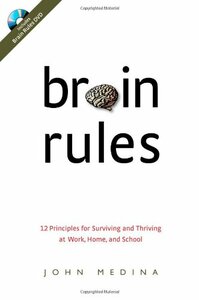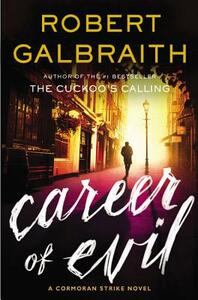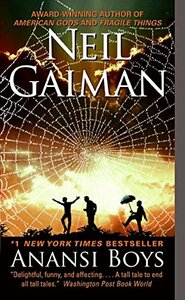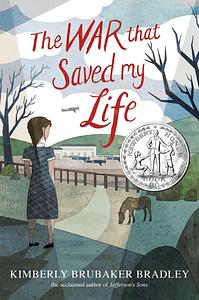You need to sign in or sign up before continuing.
Take a photo of a barcode or cover
laurieb755's Reviews (785)
Am fairly sure I read this book in 2009, a year after it was published. A book that I have kept, it remains a favored resource, as well as a reminder of my brain and all I can do to nourish it!
Garr Reynold's wrote perhaps the perfect book for how to create presentations that grab the audience, make sense, and do the job they set out to do. I highly recommend this book for ANYONE who has to share information in a visual format, especially if that format is displayed on a screen in front of an audience.
I was a little generous (well, it is the new year) with my ranking of 4 stars, but there isn't an option for 3.5. I am a Sherlock Holmes fan, so was predisposed to enjoy this tale, and Dan Simmons, for the most part, did not disappoint.
However, Simmons does like his words. A little over 600 pages in the telling, this book is big on descriptions. I got way more directional information about Henry James' walk around Washington D.C. than was necessary. Somewhere much further in the book Simmons has a character comment on the use of English (it might have been in a conversation with Samuel Clemens). Should have bookmarked it, as at the time of reading the words I immediately thought they could have been a parody of my describing Dan Simmons' writing.
Simmons pulls in multiple real people to populate this mystery and interact with Holmes, and Holmes enters the story contemplating whether or not he exists. He meets Henry James by the Seine in Paris as they both eye the river and consider adding their heft to the current.
More than once I thought of lyrics from Irma La Douce: I am alive; you're not alive; I am alive; you're not alive" as Holmes questioned his own existence. And Simmons' accounting of the relationships between Holmes and Irene Adler, and of James Moriarty, did not quite grab me as accurate. Yup, I know, Simmons is the author and has the right to craft his characters as he sees fit. But my guess is that authors hope their readers will buy into the conceit. I bought in at a 3.5 percent solution. ;-)
Not a bad book to begin in December and finish in January. Just not a great book.
However, Simmons does like his words. A little over 600 pages in the telling, this book is big on descriptions. I got way more directional information about Henry James' walk around Washington D.C. than was necessary. Somewhere much further in the book Simmons has a character comment on the use of English (it might have been in a conversation with Samuel Clemens). Should have bookmarked it, as at the time of reading the words I immediately thought they could have been a parody of my describing Dan Simmons' writing.
Simmons pulls in multiple real people to populate this mystery and interact with Holmes, and Holmes enters the story contemplating whether or not he exists. He meets Henry James by the Seine in Paris as they both eye the river and consider adding their heft to the current.
More than once I thought of lyrics from Irma La Douce: I am alive; you're not alive; I am alive; you're not alive" as Holmes questioned his own existence. And Simmons' accounting of the relationships between Holmes and Irene Adler, and of James Moriarty, did not quite grab me as accurate. Yup, I know, Simmons is the author and has the right to craft his characters as he sees fit. But my guess is that authors hope their readers will buy into the conceit. I bought in at a 3.5 percent solution. ;-)
Not a bad book to begin in December and finish in January. Just not a great book.
I did not finish this book. That's not to say I didn't like the writing, just that I did not finish the story. I couldn't. Galbraith (aka Rowling) is a wonderful story teller. As a result, she paints pictures that I recreate in my mind. The issue is, those pictures are way too vivid for me! The topic (don't want to spoil the story, so am not being specific) goes beyond my digestibility. Alas, I would greatly appreciate knowing how this tale turns out. I can make some educated guesses, but will check with friends who read it to hear the outcomes.
PS Not sure how to rate this book so decided to not rate it at all.
PS Not sure how to rate this book so decided to not rate it at all.
This was my first Neil Gaiman book. I've seen Gaiman's name online thanks to postings by a teacher I follow and have had him in the back of my head as an author to eventually read. This Gaiman book came to us via my brother-in-law, who is an avid reader of sci fi and sci fantasy.
Did I like the story? Well, yes. I must have liked the story because I read this book over two days at breakneck pace, skimming most of it. And that's the clutch. I skim read this book. The story was itching to be told or, more accurately, I was itching to know how everything turned out. But the telling of the story, though more-or-less interesting, wasn't of the type to find me curled up with a cup of cocoa, nestled in a comfortable armchair, reading each word and mulling over the characters and events. Instead, this was a race-till-the-end to see what happened story, not pausing long enough for me to ponder and think.
Would I read another of Gaiman's stories? Possibly.
Back to the story: Anansi Boys. As a child (and as an adult) I had heard of Anansi. Here's what a quick web search relates:
Anansi (/əˈnɑːnsi/ ə-NAHN-see) is an African folktale character. He often takes the shape of a spider and is considered to be the spirit of all knowledge of stories. He is also one of the most important characters of West African and Caribbean folklore.
Seems to me Gaiman riffed on the story telling of Anansi to tell his own tale of story telling. Stories are words, and words can be spoken or sung, either way they are still words telling stories. The stories can come from people, which is how we humans tend to hear the stories, but stories can also come from animals, and the animals are gods. (Perhaps we should take better care of earth's animals?…) Relationships can be complicated, not just those with parents and siblings and non-relatives, but also relationships with oneself.
There you have it; I haven't given away anything about the story, yet have told you the entire story. Kind of the tale that Gaiman might appreciate. ;-)
PS Okay, given how much I wrote, my rating should be revised to 3.5 stars or even 3.75, not because I wrote a lot, but because this book obviously caught my imagination more than I realized.
Did I like the story? Well, yes. I must have liked the story because I read this book over two days at breakneck pace, skimming most of it. And that's the clutch. I skim read this book. The story was itching to be told or, more accurately, I was itching to know how everything turned out. But the telling of the story, though more-or-less interesting, wasn't of the type to find me curled up with a cup of cocoa, nestled in a comfortable armchair, reading each word and mulling over the characters and events. Instead, this was a race-till-the-end to see what happened story, not pausing long enough for me to ponder and think.
Would I read another of Gaiman's stories? Possibly.
Back to the story: Anansi Boys. As a child (and as an adult) I had heard of Anansi. Here's what a quick web search relates:
Anansi (/əˈnɑːnsi/ ə-NAHN-see) is an African folktale character. He often takes the shape of a spider and is considered to be the spirit of all knowledge of stories. He is also one of the most important characters of West African and Caribbean folklore.
Seems to me Gaiman riffed on the story telling of Anansi to tell his own tale of story telling. Stories are words, and words can be spoken or sung, either way they are still words telling stories. The stories can come from people, which is how we humans tend to hear the stories, but stories can also come from animals, and the animals are gods. (Perhaps we should take better care of earth's animals?…) Relationships can be complicated, not just those with parents and siblings and non-relatives, but also relationships with oneself.
There you have it; I haven't given away anything about the story, yet have told you the entire story. Kind of the tale that Gaiman might appreciate. ;-)
PS Okay, given how much I wrote, my rating should be revised to 3.5 stars or even 3.75, not because I wrote a lot, but because this book obviously caught my imagination more than I realized.
George W Bush was President in 2002, following Bill Clinton to the White House. The OJ Simpson murder trial ended in 1995. And Christopher Buckley's No Way to Treat a First Lady was written in 2001, published in 2002. There you have it in a nutshell.
Absurdity and satire tied into a philandering President, an outsized legal profession, and an overdosed Washington focused media.
As a book this one waxes and wanes between three and four stars. Buckley has a generous command of English and a delightful way of cutting to the quick with deadpan humor. Is this book something to read if you want to be challenged to think? Well, maybe. It all depends upon who you are having dinner with and what you want to talk about.
For what it's worth, this is my first book by Buckley and I borrowed this and a second of his books from the library, both at the same time. I'm curious to see what impression the second book makes.
Absurdity and satire tied into a philandering President, an outsized legal profession, and an overdosed Washington focused media.
As a book this one waxes and wanes between three and four stars. Buckley has a generous command of English and a delightful way of cutting to the quick with deadpan humor. Is this book something to read if you want to be challenged to think? Well, maybe. It all depends upon who you are having dinner with and what you want to talk about.
For what it's worth, this is my first book by Buckley and I borrowed this and a second of his books from the library, both at the same time. I'm curious to see what impression the second book makes.
Oh my, this book took my breath away.
This exact story may be fiction but Ada's voice was as real as could be. And my choked up tears (rest assured, there is no spoiler in this sentence) from the last few chapters are testament to how vividly Ada, Jamie, Susan and their townsfolk were portrayed.
Whew.
And THANK YOU Ann, once again, for another excellent suggestion.
This exact story may be fiction but Ada's voice was as real as could be. And my choked up tears (rest assured, there is no spoiler in this sentence) from the last few chapters are testament to how vividly Ada, Jamie, Susan and their townsfolk were portrayed.
Whew.
And THANK YOU Ann, once again, for another excellent suggestion.
I found this a very satisfying book to read because I like mysteries and the topic resonated. Markopolos writes with a human voice. I heard the urgency and care, concern and frustration he felt as an ordinary citizen confronted with a massive lie which was defrauding thousands of people, many of them completely unaware of what was really happening to their life's savings. Markopolos has a conscience, he has a strong sense of what it means to engage in ethical behavior. When he sees the SEC ignore his attempts at cluing them in to what is going on with Bernard Madoff he is astonished by their ineptitude.
The topic resonated because back in the 1960s and 70s my Dad ran a mutual fund, during which I recall interactions with the SEC. Having lived through the financial collapse of 2008, and discussed it with my Aunt, who lived through the financial collapse of the 1929 stock market crash, it was fascinating to read this book and be privy to the levels of corruption in our financial society and the agencies charged with protecting us from that society.
This book was published in 2010, and Markopolos concludes with what appears to be some optimism that the SEC might be headed back onto a more positive track. I wish I could have that same optimism, but at the moment it seems to me that the typical U.S. citizen is still being pummeled by large corporations and money handlers that seek maximum return over investor and human benefit.
The topic resonated because back in the 1960s and 70s my Dad ran a mutual fund, during which I recall interactions with the SEC. Having lived through the financial collapse of 2008, and discussed it with my Aunt, who lived through the financial collapse of the 1929 stock market crash, it was fascinating to read this book and be privy to the levels of corruption in our financial society and the agencies charged with protecting us from that society.
This book was published in 2010, and Markopolos concludes with what appears to be some optimism that the SEC might be headed back onto a more positive track. I wish I could have that same optimism, but at the moment it seems to me that the typical U.S. citizen is still being pummeled by large corporations and money handlers that seek maximum return over investor and human benefit.
How to begin? Anterwold. Anterwold is the beginning of the next time, a post-nuclear world. And Iain Pears remains a master story teller. How perfect, yes, that Anterwold reveres the Story, the history of Anterwold.
Well, that is too simplistic an explanation of the marvels of this story. So much is swirling in my head about time, history, morality, humanity, connections, coincidences, control.
I have read every one of Iain Pears fiction books. I was first hooked with An Instance of the Fingerpost. My husband and I thoroughly gobbled up all of the Art History Mysteries (and think the BBC should turn them into a mini-series). I didn't quite understand The Dream of Scipio, and was bothered by The Portrait. Stone's Fall was fascinating until I got to the denouement, at which point I cringed.
With Arcadia Pears has caused my high regard for his story telling to be resurrected minus the discomfort caused me by the stories noted above (although that's not entirely accurate; see next paragraph). Pears has taken story telling a step further and crafted a story that can be read in book format (my approach) or via the iPad app Arcadia (which I have not tried, but might at some point in the future.) If you do a web search you will find multiple interviews where he explains his approach and rationale.
Upon finishing Arcadia I broke into a smile of delight, for this story kept me engaged and gave me much pleasure to read. But then I was back in the present. I live in New York, in the United States. "United" is a misnomer now more than ever. We are in the midst of the 2016 presidential campaign, and I am truly fearful for what the results may be. Ever mindful of not discussing politics in a public forum such as this, I refrain from stating specifics, but I wince at the deterioration of discourse and decorum, of respect and basic human decency towards others, and wonder at the prescience of Pears.
Well, that is too simplistic an explanation of the marvels of this story. So much is swirling in my head about time, history, morality, humanity, connections, coincidences, control.
I have read every one of Iain Pears fiction books. I was first hooked with An Instance of the Fingerpost. My husband and I thoroughly gobbled up all of the Art History Mysteries (and think the BBC should turn them into a mini-series). I didn't quite understand The Dream of Scipio, and was bothered by The Portrait. Stone's Fall was fascinating until I got to the denouement, at which point I cringed.
With Arcadia Pears has caused my high regard for his story telling to be resurrected minus the discomfort caused me by the stories noted above (although that's not entirely accurate; see next paragraph). Pears has taken story telling a step further and crafted a story that can be read in book format (my approach) or via the iPad app Arcadia (which I have not tried, but might at some point in the future.) If you do a web search you will find multiple interviews where he explains his approach and rationale.
Upon finishing Arcadia I broke into a smile of delight, for this story kept me engaged and gave me much pleasure to read. But then I was back in the present. I live in New York, in the United States. "United" is a misnomer now more than ever. We are in the midst of the 2016 presidential campaign, and I am truly fearful for what the results may be. Ever mindful of not discussing politics in a public forum such as this, I refrain from stating specifics, but I wince at the deterioration of discourse and decorum, of respect and basic human decency towards others, and wonder at the prescience of Pears.
In fairness to B.A. Shapiro, I started reading this book within days of finishing Iain Pear's Arcadia. On top of that, I came down with the flu. Having read Shapiro's previous book, The Art Forger, I notice that both books resulted in the same rating by me.
The story – it's always about the story – compelled me to stick with the book. Of course I wanted to know how it resolved. However, the writing, particularly of Dani's portions, struck me as immature; there were two typos I noticed early on; and the characterization of Dani seemed contrived.
Was I moved by the ending? Of course. But not because it was Dani's story; because it was Alizée's story.
The story – it's always about the story – compelled me to stick with the book. Of course I wanted to know how it resolved. However, the writing, particularly of Dani's portions, struck me as immature; there were two typos I noticed early on; and the characterization of Dani seemed contrived.
Was I moved by the ending? Of course. But not because it was Dani's story; because it was Alizée's story.









